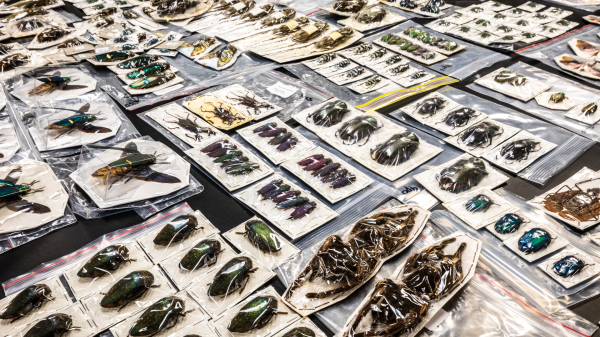Do early life immune challenges shape personality?

In other words, while all adult mallards walk like a duck and quack like a duck, immune challenges may create a range of very behaviorally different ducks.
The study, published in the journal Proceedings of the Royal Society B and also noted by the journal Science, sought to examine the basis for widespread individual behavioral differences among animals of the same species. The study’s authors, led by Butler, a doctoral student in ASU’s School of Life Sciences, injected ducklings at three stages of development with a non-pathogenic agent, sheep red blood cells, a standard eco-immunological technique. At maturity, two measures of personality were then observed: activity and color-dependent novel object exploratory behavior.
The team, composed of Butler, Matthew Toomey, Melissah Rowe, and Kevin McGraw, an associate professor in the School of Life Sciences in the College of Liberal Arts and Sciences, found that control ducks preferred objects colored red and avoided objects colored orange. However, adult mallards that were immune challenged as ducklings, in the middle stage of their development, were more attracted to orange objects, and less interested in red items.
“Another interesting pattern we found,” says Butler, “is that a non-infectious immune challenge in the middle or later stages of duckling development also boosted activity levels as adults, which is contrary to what you see for typical sickness behaviors.”
The Discover article points out that the authors’ findings contribute to a theoretical conversation, with few strong experimental examples: “as scientists have realized that personality is governed by both genetic and environmental factors, they have begun to investigate the idea that permanent changes in personality could result from events that happen during development. Such changes could help individuals adapt to their environments – for instance, by migrating away from a polluted area or seeking new sources of food when familiar sources are scarce.”
An individual’s personality affects how he/she gathers food, avoids predators, attracts mates and raises young. While the study of animal personality has exploded in recent years, many questions remain unanswered. However, the ASU team's work provides some new insights. According to Butler, these results “support recent hypotheses positing that parasites or pathogens can drive personality variation.” Future work by the group will continue to explore the ecological and evolutionary underpinnings of animal personality, "with ASU at the forefront," Butler says.
To read more: Ontogenetic immune challenges shape adult personality in mallard ducks. Michael W. Butler, Matthew B. Toomey, Kevin J. McGraw and Melissah Rowe. Proc. R. Soc. B published online 8 June 2011. doi: 10.1098/rspb.2011.0842
Article source: Discover MagazineMore ASU in the news

ASU makes progress toward establishing new medical school, could admit students by 2026

How to Make Urban Agriculture More Climate-Friendly
